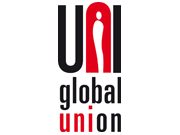Calm before the storm for private equity and unions

| UNI Global Union alerts workers and their union’s to what is coming in the fight for proper regulation of private equity. A tidal wave of regulatory battles in Europe and the US is expected in the next three months. A pro-private equity EU presidency from Sweden is expected to favour light regulation for private equity and hedge funds. The US government is beginning to formulate their regulatory response. The hedge fund and private equity funds are wheeling out the heavy lobbying artillery to ensure “business as usual”. Hedge funds are now making the ridiculous assertion that they had no role in the global financial crisis. UNI Global union with the ITUC is stitching together an alliance for proper financial reform that brings together a rance of actors from unions, NGO’s, academics and commentators. Philip Jennings, General Secretary of UNI Global Union said “We are prepared to up the stakes in our quest for regulation, as the Financial Times observed recently ‘As a weapon of corporate mass destruction, private equity’s place in history seems assured.” The figures for private equity debt are getting worst even with the increasing confidence in financial markets. Economists predict numerous companies collapsing in the next 6-12months when the rising default rate on debt owed by private equity hits. Jobs are vulnerable and conditions and wages are threatened when companies go into distress. Workers in private equity owned companies need to get organised and engage with their unions now. New figures on private equity debt “The world of private equity seems eerily becalmed… So when will the storm break?” says Tony Jackson, FT Columnist. Default rate on European leveraged loans: 2008 -5% 2009 (first half) -8%. Expected to reach 15%. 2010 predicted to repeat rate of 15%. Total Loan Value: €320bn (£274bn) Result: “Repeat that next year, as is expected, and a third of European companies bought in the bubble years will have gone bust – many of them in the UK.” -What is the estimation on what this means for job loss and employment conditions? Alarming fact: European pension funds and insurance companies are beginning to buy these loans as an investment. “Besides the risk of default, there is the question of recovery – how much will be left after bankruptcy. According to Standard & Poor’s, the implicit assumption today is that the recovery rate on senior secured loans will be 70 per cent. Also according to S&P, that is likely to be too high.” To read full FT article: http://www.ft.com/cms/s/0/134caa2c-698a-11de-bc9f-00144feabdc0.html |

